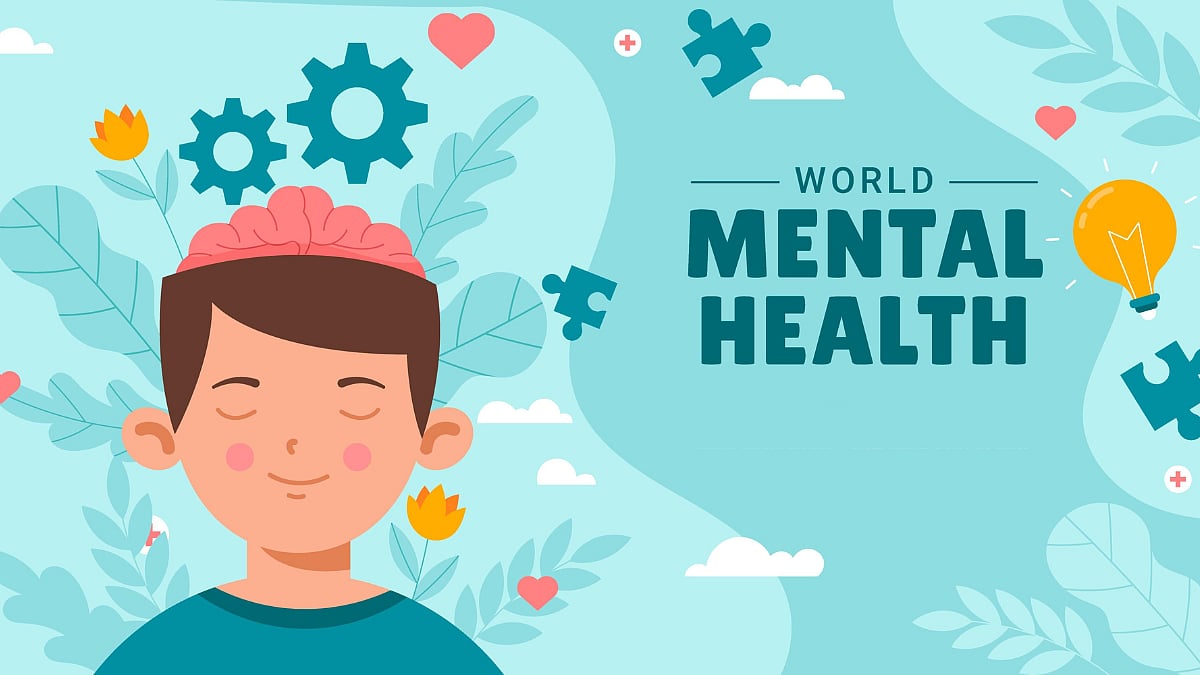Our well-being is intricately linked to both our mental and physical health, and as a result, there is a growing awareness of the importance of maintaining a balanced mental state. According to the World Health Organization (WHO), approximately 1 in 8 individuals worldwide grapple with a mental disorder, and issues like anxiety and depression manifest in various forms among different people.
Developing habits such as meditation, journaling, seeking support from qualified professionals, nurturing a vibrant social life, and adhering to a regular exercise routine and discipline can trigger the release of endorphins, commonly known as "feel-good hormones," that play a pivotal role in enhancing one's mood, diminishing stress levels, and contributing to an overall sense of well-being.
Here are 5 essential mental health tips to transform one's life:
Enhance Your Emotional Intelligence

Emotional intelligence involves leveraging emotions to inform rational thinking and employing cognitive processes to comprehend and manage emotions effectively. The initial step in developing emotional intelligence is to decipher the underlying reasons for experiencing intense emotions. A helpful practice for achieving this is journaling, as it aids in processing intricate emotions or immediate emotional reactions. It's beneficial to document the sources of both joy and sadness, allowing us to identify specific triggers for our emotional responses and apply cognitive strategies to manage them.
Another facet of emotional intelligence involves recognizing unmet emotional needs, such as the desire for acknowledgment, understanding, or control, which can elicit emotional reactions. Here, emotional intelligence comes into play as we learn to respond consciously and purposefully, moving away from knee-jerk reactions.
Mitigating OCD by Identifying Triggers

The amygdala, a small, almond-shaped structure in the human brain responsible for regulating decision-making and emotional responses to environmental changes, wields significant influence over OCD behaviour. It initiates the body's defense mechanism, triggering emotions like fear, anxiety, or dread. Sometimes, the amygdala can misinterpret a situation as dangerous when it's not, causing an exaggerated fear response, which is central to OCD symptoms.
To address this, individuals can acknowledge when the amygdala is responsible for their anxiety response. By reshaping their default thought patterns and accepting their complex emotions, they can redirect their minds to a more balanced state. This process may entail confronting past traumas, identifying triggers, unburdening emotional baggage, fostering self-acceptance, keeping a journal, and seeking therapy when necessary.
Foster Open and Honest Workplace Conversations

Our work environment can profoundly impact our mental well-being. Research shows that many people experience mental health issues due to challenging work conditions.
Factors like a toxic workplace, unrealistic deadlines, poor communication, strained relationships, heavy workloads, and a lack of managerial support can significantly affect an individual's mental health. Promoting awareness and encouraging open discussions about mental health and well-being in the workplace can foster positive attitudes and expectations. Encouraging open conversations makes employees feel more at ease approaching HR or their managers when they encounter difficulties.
Understanding Triggers for ADHD

Individuals with Attention-Deficit Hyperactivity Disorder (ADHD) often employ self-protective coping mechanisms, including concealing their condition and its symptoms. Identifying the areas where ADHD impacts daily life is a crucial step. Once recognized, individuals can work on strategies, set schedules, and improve behavior and concentration. Developing a comprehensive self-awareness that encompasses strengths, weaknesses, challenges, interests, support needs, available resources, and enduring character traits is vital.
Incorporate Meditation into Your Daily Routine

Our minds possess the remarkable ability to heal and find joy, and meditation, combined with a healthy lifestyle and a positive outlook, can be a powerful tool for achieving mental and emotional well-being, as well as improving physical health. Buddhism teaches the value of recognizing the unnecessary stress we create by understanding the truth of reality. The healing process involves three essential steps: acknowledging setbacks, embracing them, and cultivating a positive mindset.
Meditation and a positive attitude can benefit anyone, and it's a good practice to start with short, 10-minute sessions and gradually extend the duration. Instead of striving to meditate perfectly from the start, focus on gaining control over your thoughts and senses, and witness the transformative impact on your life.










